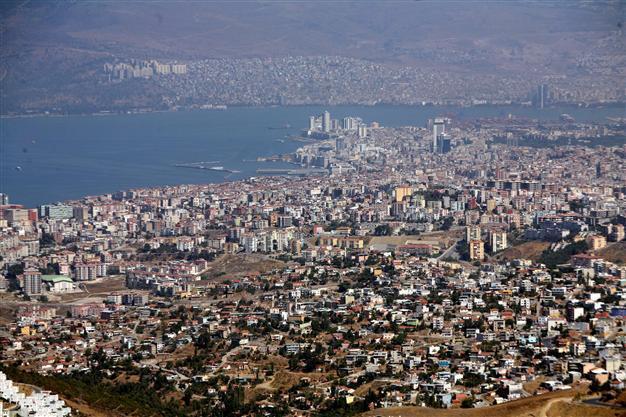Four Turkish cities in top 10 for economic performance among world cities
WASHINGTON

DHA Photo
Four Turkish cities entered the list of the world’s top 10 best performing cities economically in 2014, according to a report by the Brookings Institution’s Metropolitan Policy Program.
İzmir, Istanbul, Bursa and Ankara made the top 10 among 300 cities worldwide in the report, released as a part of the Global Cities Initiative, a joint project of Brookings and JPMorgan Chase.
“If you look at world headlines, Turkey is not in the news for its economic success, but it probably should be,” said Joseph Parilla, a Brookings research analyst who co-wrote the report. “It has pretty solid macroeconomic policies.”
“Despite national security concerns, Turkish metropolitan areas had an exceptional 2014, with İzmir, Istanbul and Bursa each placing among the world’s top five performers, led by strong expansions in business and financial services,” stated the report, which ranks cities by growth in employment and in economic output per person.
Turkey benefits from its location at the boundary between Europe and Asia and from heavy investments in roads and other infrastructure projects, which creates jobs over the short term and is likely to make the economy more efficient over the long term, it added.
Macau, the Chinese territory known for casino gambling, ranked first in the report, as cities in the developing world, especially China, dominated the top of the annual economic rankings of 300 cities. The one exception was Bangkok, Thailand, which came in last with its economy wrecked by political strife.
Meanwhile, cities in wealthy, developed countries tended to lag behind in the ranking. Though most of the cities surveyed around the world have recovered from the recent recession, 65 percent of European and 57 percent of North American cities have not, according to the study.
Big differencesParilla said he was surprised by the “incredible differentiation within what are considered monolithic economic blocs.” Latin American cities, for instance, mostly sputtered. But Medellin, Colombia and Lima, Peru both broke into the top 50.
Cities in wealthy countries tended to perform poorly. But U.S. and British cities showed improvement. Three U.S. cities –Austin and Houston, Texas and Raleigh, North Carolina cracked the top 50. In the United Kingdom, London came in at 26 and Manchester at 60. The U.S. and Britain have begun to pick up economic momentum five years after the recession ended. “In developed economies, like North America and Western Europe, cities like London and Houston are flying high, while others like Rotterdam and Montreal are struggling,” Parilla said.
Some 27 of the 50 top-performing cities were in China. Increasingly strong growth occurred in the traditionally underdeveloped cities of China’s interior, rather than its booming coastal cities.
Land-locked Changsha, for instance, enjoyed economic growth per person of 8.6 percent last year and wound up at 15 in the overall rankings.
The coastal manufacturing powerhouse of Dongguan, next door to Hong Kong, registered per capita economic growth of just 5.2 percent, unimpressive by Chinese standards, and finished at 70.
Companies have begun to move inland, as the cost of labor and land rises on the Chinese coast. The Chinese government has invested heavily on infrastructure in the interior.
The 18 cities worldwide that specialized in producing commodities, such as oil, registered the highest rates of growth in economic output per person (2.6 percent) and employment (1.9 percent).
“The recent rise in oil and gas production in North America partly explains the success of metropolitan areas like Calgary, Denver, Houston and Tulsa, which are epicenters of the region’s shale revolution,” the report added.
However, next year’s rankings may be significantly different. Oil prices have plunged to less than $48 a barrel from $107 a barrel last June, jeopardizing the prospects of cities that had been riding the energy boom.
